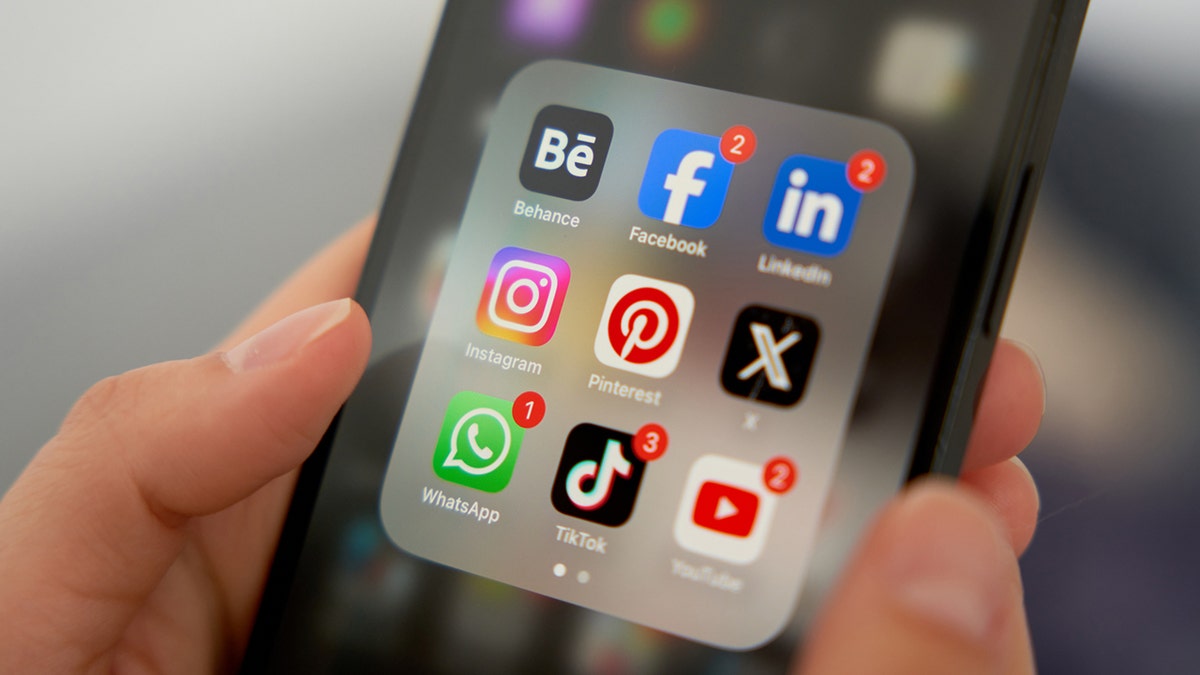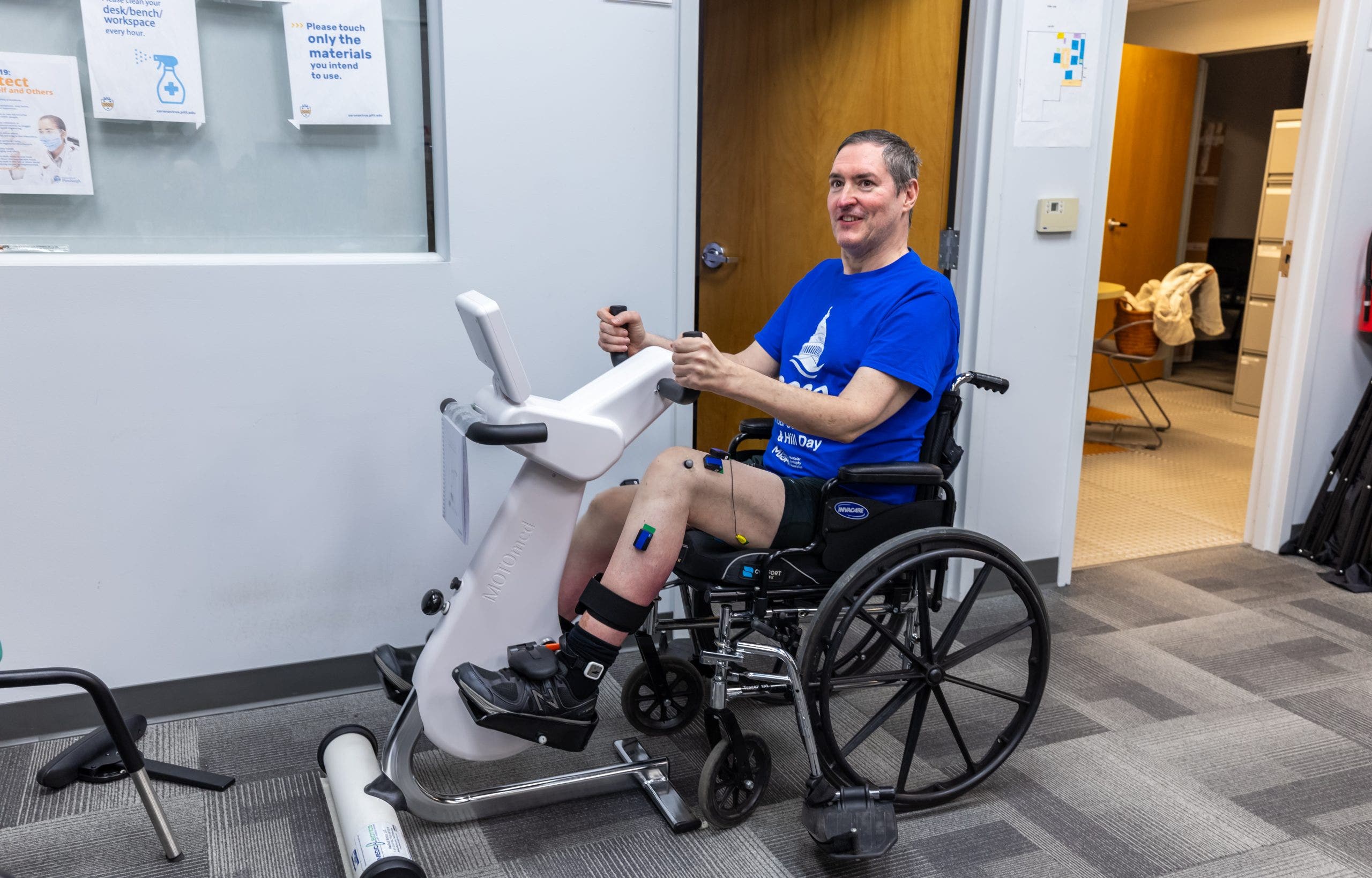Oxford University Press has chosen “brain rot” as its word of the year.
The word is defined as “supposed deterioration of a person’s mental or intellectual state, especially viewed as a result of overconsumption of material (now particularly online content) considered to be trivial or unchallenging. Also: something characterized as likely to lead to such deterioration.”
Some experts believe that constant, endless scrolling of social media and other online content is doing exactly that – rotting our brains.
WHY DO WOMEN GET ‘THE ICK’ FROM MEN? EXPERTS EXPLAIN THE PSYCHOLOGY BEHIND THE FEELING
Behavioral neuroscientist Dr. Kyra Bobinet, author of “Unstoppable Brain,” told Fox News Digital that there is a growing awareness of brain rot and its consequences.

Oxford University Press choosing “brain rot” as the word of the year is “pinpointing the issues,” according to one expert. (iStock)
“It’s in the zeitgeist that people have difficulty with their attention span. They feel brain foggy, they [have] less concentration … They can’t do deep work,” said California-based Bobinet.
“And then there’s also this epidemic of loneliness that has been kind of sitting on the heels of this, because we can’t really focus on anything, including relationship-building.”
Stuck in a scroll
A certain part of the brain, called the habenula, is responsible for getting stuck in endless scrolling, according to Bobinet.
The habenula is a central part of the brain that’s involved in various important functions, including motivation and decision-making. But when activated, this area can also “kill our motivation to try,” she noted.
STUDY LINKS MENTAL HEALTH RISKS TO THIS TOXIN FOR THOSE BORN IN ‘60S OR ’70S
“It’s the heart of when you know you should be doing something, and you do this other thing instead, like ‘doom-scrolling,'” she said.

“This is the area of our brain that when it’s on, we feel depressed. We feel out of control, we feel impulsive, we feel addicted,” one neurologist said about the habenula. (iStock)
Scrolling on social media is also a way to “disassociate” and give the brain a rest after a long day, Bobinet said. This is an “avoidance behavior,” which the habenula controls.
EXCESSIVE SOCIAL MEDIA USE HAS MANY OF THE SAME EFFECTS AS SUBSTANCE ABUSE, SAYS EXPERT
“Anytime you’re avoiding something, you know this area of the brain is on,” she said.
This is how social media addictions can form, Bobinet warned, as this part of the brain can make it “very painful” to stop scrolling.

“There’s this epidemic of loneliness that has been kind of sitting on the heels of this, because we can’t really focus on anything, including relationship-building,” one expert said. (iStock)
This can result in a “dangerous” loss of motivation, the neuroscientist warned.
“We all need motivation to live our lives and to feel proud of ourselves and to feel confident and to get what we want,” she told Fox News Digital.
How to avoid brain rot
There isn’t a one-size-fits-all solution for avoiding brain rot, according to Bobinet.
The key is learning what works best for the individual, she said, which involves “tweaking and tinkering and adjusting as you go,” she said.
“Humans are very resilient,” she added. “Once we know the truth about our bodies, then we can do something about it.”

Scrolling on social media is a way to “disassociate” and give the brain a rest after a long day, which is an “avoidance behavior,” one neuroscientist said. (iStock)
Dr. Don Grant, national adviser of healthy device management at Newport Healthcare in Los Angeles, called out device makers and content producers for keeping users hooked to their devices.
“They’re very clever, these creators who created these algorithms and also leverage our limbic system – the same [way] the people who created slot machines did,” he told Fox News Digital. “Pull the handle … You never know what you’re going to get.”
‘BED ROTTING’ IS SELF-CARE, SOME INSIST, BUT MENTAL HEALTH EXPERT SHARES WARNINGS ABOUT SOCIAL MEDIA TREND
Grant said he’s concerned about “the death of some things,” including imagination.
“We don’t have to imagine anything anymore,” he said. “We pick up our devices every time. I’m worried about memory. I’m worried about education.”
Grant said he often hears from kids that they spend eight hours on any given night scrolling and watching videos, which “disrupts their sleep hygiene.”

One expert said he often hears from kids that they spend eight hours on any given night scrolling and watching videos, which “disrupts their sleep hygiene.” (iStock)
“And I say, ‘OK, can you tell me one video you remember?’ I have yet to have one kid really be able to remember anything they saw.”
“Our brain matter is diminishing, our memories are diminishing [and] our attention spans are diminishing,” Grant warned.
“I’m worried about memory. I’m worried about education.”
The expert offered some tips to avoid getting stuck in a “doom scroll” of “endless, bottomless” content, especially for children.
Since the internet is “archived forever,” Grant noted that “FOMO,” or fear of missing out, is not a valid reason to stay online.
For more Health articles, visit foxnews.com/health
“Maybe phone a friend or FaceTime your grandma for the holidays,” he suggested.
Grant also urges people to be more strategic about spending time online, splitting it up into 80% “meaningful, legitimate” content and 20% entertainment.

One expert urges people to be more strategic about spending time online, splitting it up into 80% “meaningful, legitimate” content and 20% entertainment. (iStock)
“For digital hygiene and well-being, you can set limits, you can block access,” said Grant. “Set tech-free times and zones in your home, especially for families.”
“Get outside, move a muscle … play memory games, intellectually challenging or educational games.”
CLICK HERE TO SIGN UP FOR OUR HEALTH NEWSLETTER
The expert also encourages people to ask themselves a few questions after scrolling to help gauge the quality of time spent.
These might include: “Could you tell me how much time you were online? Did you spend more time than you wanted to? Did you feel better?”
CLICK HERE TO GET THE FOX NEWS APP
Grant added, “There’s a perceived danger of virtual life and how we’re using our free time – at the end of it, are you really feeling good about yourself?”






